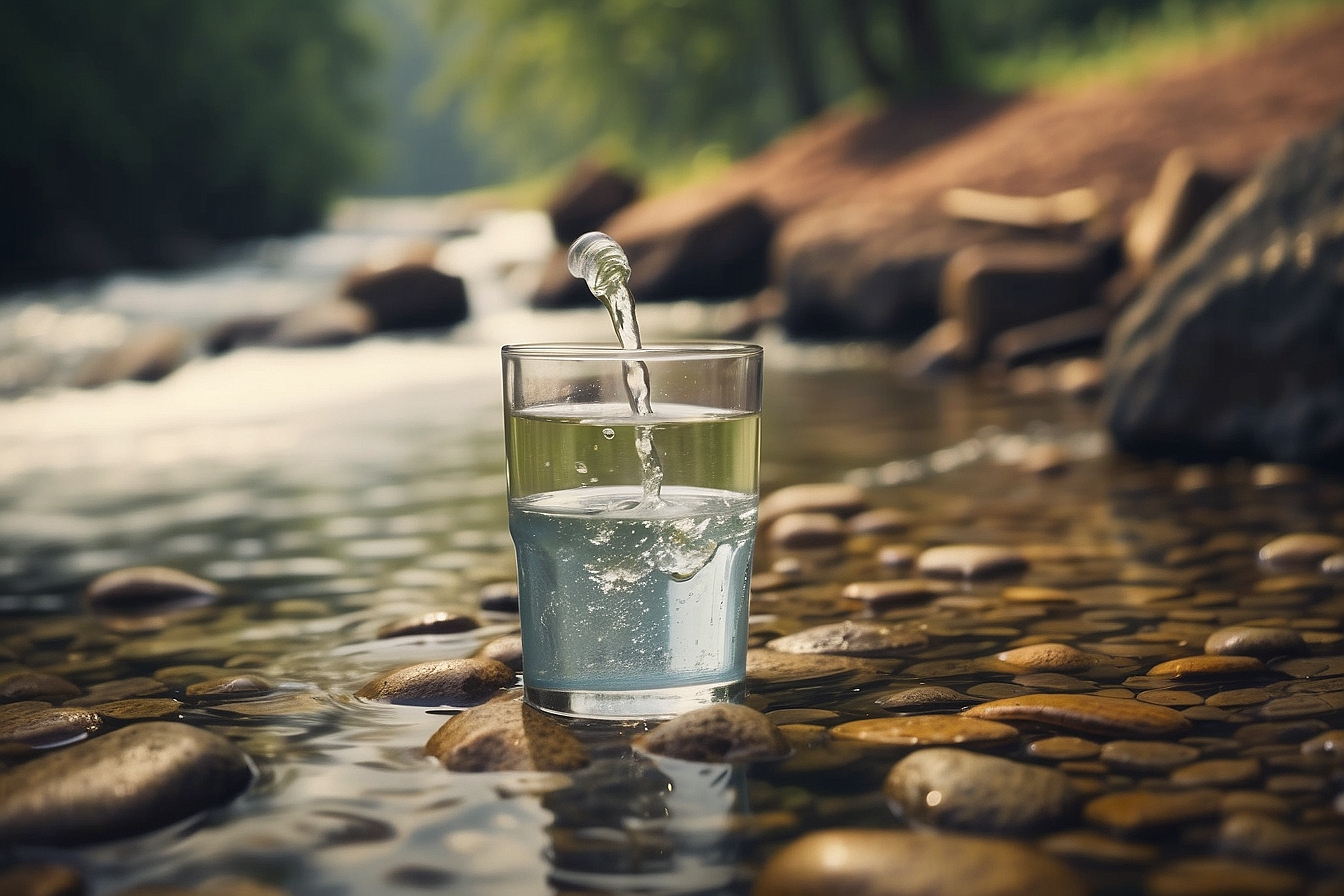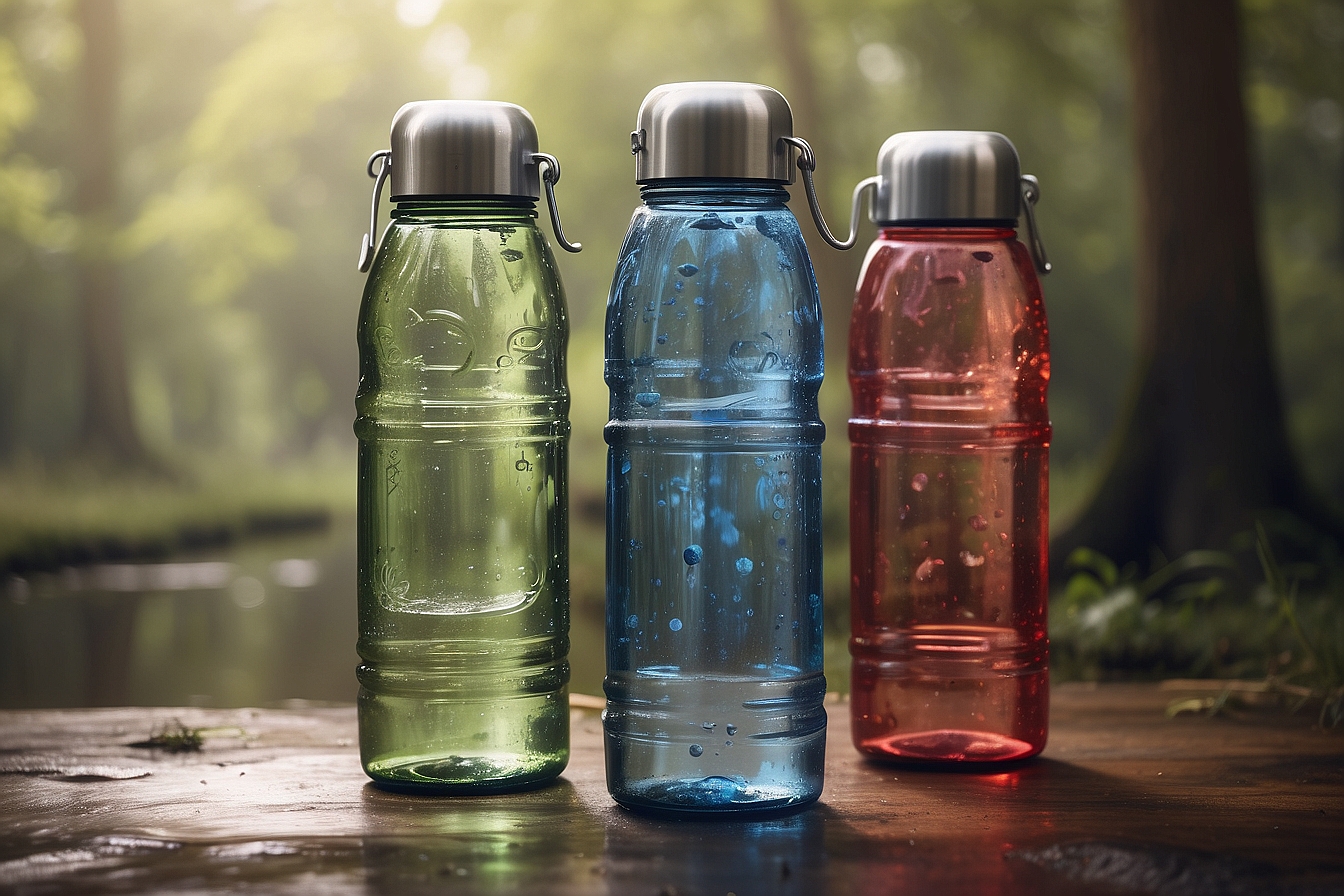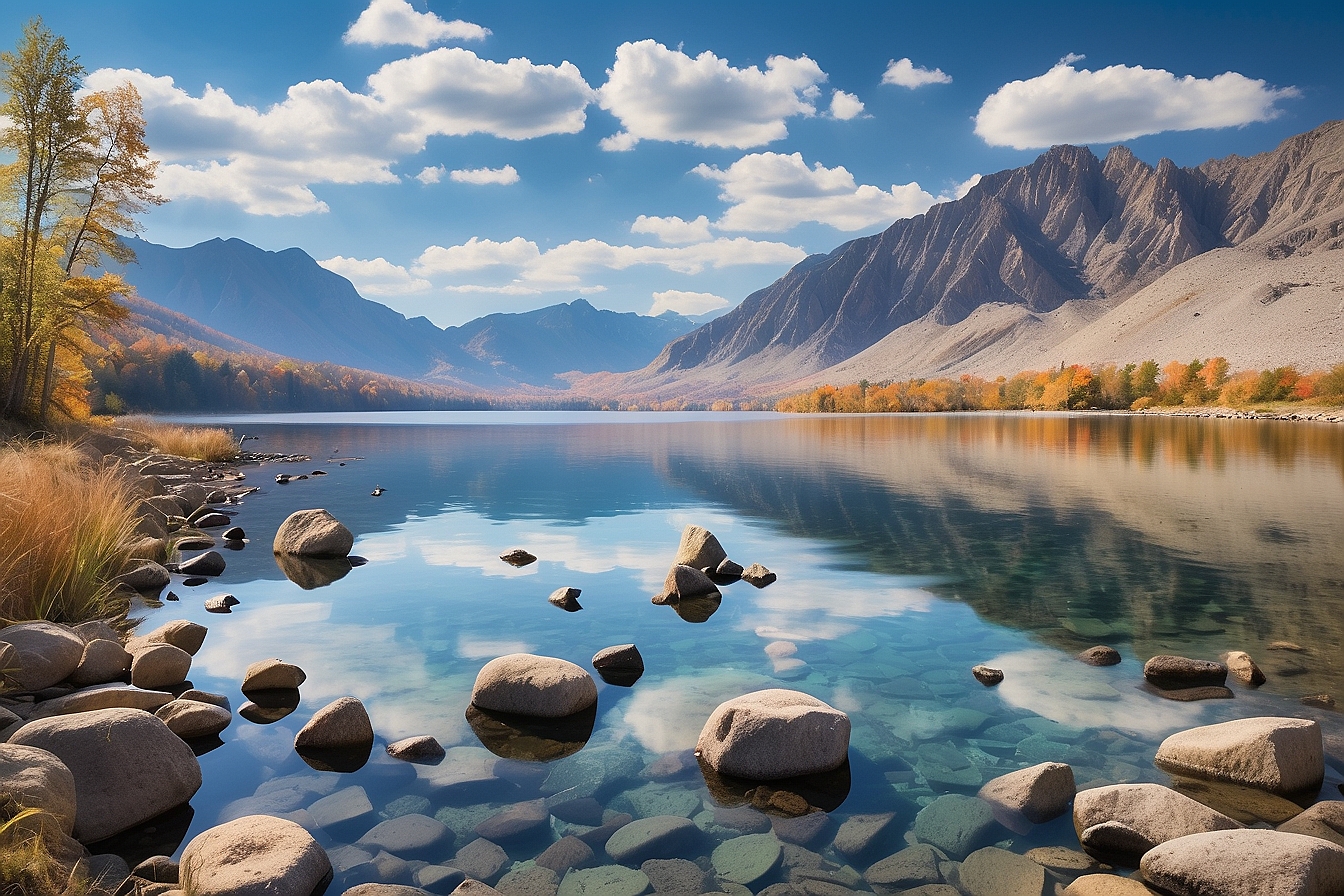Water is the very essence of life, yet for far too many, the unsettling spectre of barren taps looms large. It’s a plight that resonates deeply with our team; we’ve witnessed how an alarming two billion individuals are left parched by a lack of clean water.
In this article, we’ll shed light on actionable steps and insights aimed at tackling the global freshwater predicament that confronts us all. Immerse yourself in sustainable solutions—a call to arms for those yearning to spearhead a tide of transformation and provide solace for our planet’s thirst.
Key Takeaways
- Over two billion people around the world do not have access to safe drinking water, which is causing serious health issues and impacting global ecosystems.
- The main causes of water scarcity are climate change, pollution from industrial waste, intensive agriculture consuming vast amounts of water, and rapid population growth putting more strain on limited resources.
- The WWF promotes sustainable practices such as water stewardship and protecting wetlands to manage water scarcity. Their efforts include adapting to climate changes by implementing efficient irrigation methods and promoting conservation techniques.
- Individuals can contribute to solving the freshwater crisis by adopting a dolphin with WWF, supporting global initiatives for clean water solutions like building wells, or staying informed through news outlets like Circle of Blue’s WaterNews.
- Common concerns addressed in the article include why relocating closer to fresh water is not always feasible for communities, challenges faced in creating their own wells due to lack of expertise or resources, and how women and girls are disproportionately affected by the global water crisis.
Understanding the Global Water Crisis
Water scarcity is a pressing issue worldwide, with causes including climate change, pollution, agriculture, and population growth. This crisis has far-reaching impacts on ecosystems and billions of people lack access to clean water.
Water Scarcity
We face a dire reality where water scarcity touches every continent and affects billions of lives. It’s not just about the amount of water available but having access to clean and safe drinking water too.
As populations boom and urban development expands, our freshwater sources come under increased pressure. This isn’t an issue we can sideline; it’s one that demands immediate action from all of us.
Our choices have a ripple effect on global water resources, pushing many regions into severe droughts and leaving others grappling with water depletion. Climate change worsens this crisis by disrupting weather patterns, leading to both floods in some areas and parched lands in others.
We must amplify our conservation efforts and promote sustainable water management practices now more than ever to safeguard our limited water supply for future generations.
Causes (Climate Change, Pollution, Agriculture, Population Growth)
The global water crisis is driven by several factors, including climate change, pollution, agriculture, and population growth.
- Climate Change: Rising temperatures lead to increased evaporation, reducing the availability of freshwater.
- Pollution: Contamination from industrial runoff and waste disposal affects the quality of available water sources.
- Agriculture: Intensive farming practices contribute to excessive water usage and chemical runoffs, impacting water quality.
- Population Growth: Increasing demand for clean water amplifies stress on limited freshwater resources.
Impacts (Billions of People Lack Water, Disappearing Wetlands, Damaged Ecosystems)
As a result of climate change, pollution, and population growth, billions of people face water scarcity globally. This has led to the disappearance of wetlands and damaged ecosystems.
The lack of access to clean water not only affects human health but also disrupts the balance of local ecosystems. Wetlands play a crucial role in maintaining biodiversity and providing essential ecosystem services such as flood control and water purification.
The disappearing wetlands have cascading effects on wildlife habitats and the overall health of freshwater systems. Damaged ecosystems directly impact agriculture, fisheries, and livelihoods that depend on healthy water sources.
WWF’s Efforts in Managing Water Scarcity
Promoting Water Stewardship, protecting wetlands and adapting to climate change are just a few ways that WWF is addressing the global water scarcity issue. Find out more about their initiatives on their official website.
Promoting Water Stewardship
To promote water stewardship, we can engage in responsible water usage in our daily lives. Supporting organisations that work towards sustainable water management is crucial to ensuring clean water access for all.
Participating in community initiatives and advocating for policy changes on local and global levels are impactful ways to support water conservation efforts. By spreading awareness about the importance of preserving freshwater sources, we can inspire others to take action and contribute to addressing the global water crisis.
Encouraging industries to implement efficient water management practices is vital for reducing water stress and insecurity. Collaborating with businesses to adopt sustainable manufacturing processes and reduce their environmental impact helps in conserving fresh water resources for present and future generations.
Protecting Wetlands
Wetlands are crucial for maintaining water quality, mitigating floods, and preserving biodiversity. By safeguarding wetlands, we can protect habitats for countless species and ensure a sustainable supply of clean water.
This involves regulating pollution and halting the draining or filling in of wetlands to sustain their natural functions.
Preserving wetlands requires collective action through advocating for policies that support their protection, enacting regulations against draining or damaging these ecosystems, and actively participating in conservation efforts.
Engaging in wetland restoration projects also plays a significant role in protecting these vital ecosystems from further degradation.
Adapting to Climate Change
To address the challenge of water scarcity in the face of climate change, we must adapt to changing weather patterns and resource availability. This involves implementing sustainable water management strategies, such as rainwater harvesting, efficient irrigation methods, and promoting water conservation practices at both individual and community levels.
Additionally, investing in resilient infrastructure that can withstand extreme weather events and integrating climate considerations into water resource planning are essential steps towards adapting to the impacts of a changing climate on freshwater resources.
Innovative solutions like introducing drought-resistant crops and reducing reliance on water-intensive agricultural practices also play a crucial role in adapting to climate change’s effects on freshwater availability.
How You Can Help
Take action by adopting a dolphin, supporting global water solutions, and staying informed with WaterNews from Circle of Blue. Find out how you can make a difference in addressing the global water crisis.
Adopting a Dolphin
When adopting a dolphin, you directly contribute to the conservation of their natural habitats and the protection of other marine species. By symbolically adopting a dolphin through reputable organisations like WWF, you support vital research and conservation work in safeguarding these intelligent creatures’ environment from pollution, habitat destruction, and climate change.
Your contribution helps WWF continue its essential efforts in ensuring clean and healthy oceans for dolphins and all marine life.
Supporting global water solutions is crucial in addressing the freshwater crisis. One impactful way to make a difference is by promoting water stewardship within your community. Encouraging responsible water use, supporting initiatives that protect wetlands and ecosystems, and advocating for sustainable management practices can significantly contribute to preserving this precious resource for future generations.
Supporting Global Water Solutions
By supporting global water solutions, individuals like us can play a crucial role in mitigating the freshwater crisis. Engaging with reputable organisations and NGOs working towards sustainable water management can make a tangible impact.
Whether through donations, volunteer work, or advocacy efforts, our contributions help fund critical projects such as building wells, implementing water purification systems, and promoting water conservation education programmes.
Additionally, staying informed about the latest advancements in water scarcity solutions is essential for making informed decisions and backing effective initiatives. This may involve subscribing to newsletters from reputable sources like Circle of Blue to stay updated on global efforts addressing the freshwater crisis.
Staying Informed with WaterNews from Circle of Blue
Transitioning from supporting global water solutions, staying informed with WaterNews from Circle of Blue is crucial for understanding the ongoing freshwater crisis. Accessible and reliable information empowers us to advocate for change, stay updated on current water-related events, and learn about innovative solutions to address the global water scarcity.
Regularly following WaterNews from Circle of Blue equips us with the knowledge needed to make informed decisions in supporting global water conservation efforts and advocating for sustainable practices in our communities.
FAQs about the Global Water Crisis
Want to know more about the global water crisis? Learn about fast facts and common questions, such as why people don’t move closer to water, the challenges of digging wells, and how women and girls are affected.
Stay informed and help spread awareness.
Fast Facts
In addressing the urgent matter of the global water crisis, we’re providing key information that highlights the severity of the situation. Below is a table filled with fast facts that we, as environmentally conscious individuals, should be aware of in our mission to support conservation and environmental sustainability.
| Fact | Detail |
|---|---|
| People without access to safe water | Over 2 billion worldwide |
| Children dying from water-related diseases | Approximately 1,000 per day |
| Contribution of agriculture to water use | About 70% of global freshwater withdrawals |
| Wetlands Lost | Over 50% in the last century |
| Impact on Women and Girls | Disproportionate burden in water collection |
| Population increase by 2050 | Expected to rise to 9.7 billion |
| Climate change impact on water | Intensifying droughts and floods |
Each fact serves as a stark reminder of the challenges we face and the actions we must take collectively to ensure a sustainable and equitable water future. Let’s commit to being part of the solution.
Common Questions (Why don’t people move closer to water? Why can’t they dig their own wells? How are women and girls affected?)
When considering the global water crisis, it’s essential to address common questions that arise. Understanding the challenges and implications is crucial for generating meaningful solutions. Here are insights into these commonly asked questions:
- Moving Closer to Water: In many cases, people do live near water sources, but unfortunately, these sources may be contaminated or inadequate due to pollution and overuse. It’s not always feasible for individuals to relocate to areas with better access to clean water.
- Digging Own Wells: While digging wells may seem like a simple solution, it requires expertise and resources that communities often lack. Moreover, indiscriminate well-digging can deplete groundwater resources and lead to environmental damage.
- Impact on Women and Girls: In many developing regions, women and girls bear the responsibility of fetching water for their families. The lack of safe water sources places them at risk of health issues, impedes their education, and reinforces gender inequalities.
Conclusion: The Urgent Need for Addressing the Global Water Crisis
The urgent need for addressing the global water crisis is clear. We must act now to prevent further damage to our precious freshwater resources. Everyone can play a part in finding solutions and supporting conservation efforts.
Together, we can make a difference and secure a sustainable water future for generations to come.
FAQs
1. What is the freshwater crisis?
The freshwater crisis refers to the growing problem of water shortage and water insecurity that affects people’s access to safe drinking water across the globe.
2. Why are we facing a global water scarcity?
Global water scarcity is due to a combination of factors including rising demand, pollution, climate change, and unsustainable management of water resources leading to an acute drinking water shortage for many.
3. How can we tackle the issue of water shortage?
Solving the issue requires effective water crisis solutions such as conservation practices, investing in efficient technologies, better management strategies, and international cooperation focused on creating sustainable sources for fresh drinkable water.
4. Are there any innovative approaches being considered to address this problem?
Researchers and policymakers are exploring new methods like desalination technology, rainwater harvesting systems, and wastewater treatment processes both to increase supplies and reduce pressure on existing sources amidst this escalating global challenge.





